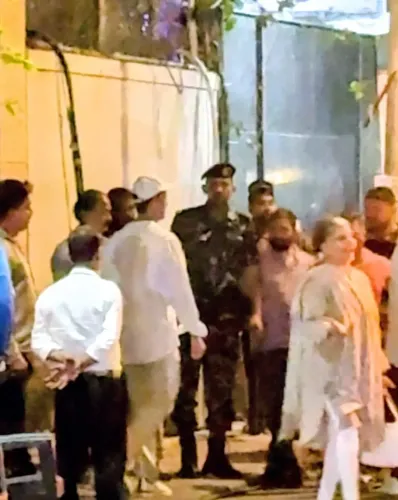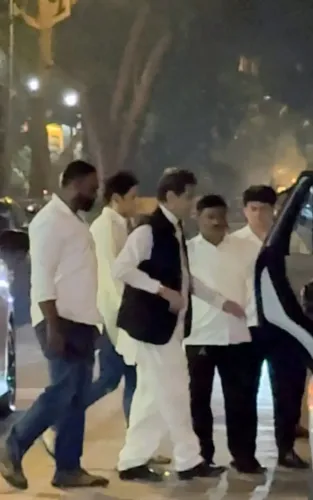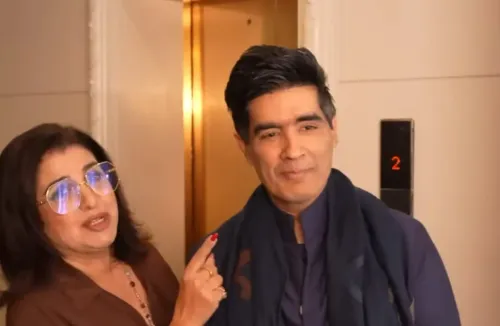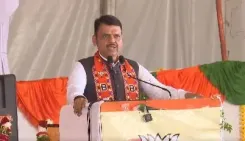Did Riteish Deshmukh Remember 'The He-Man of India', Dharmendra?
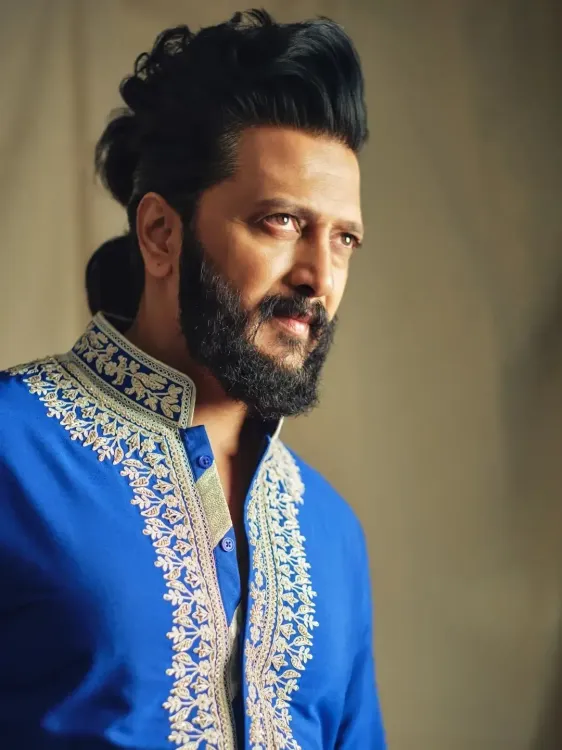
Synopsis
Key Takeaways
- Riteish Deshmukh pays homage to Dharmendra.
- Dharmendra's warm personality touched many lives.
- His cinematic legacy includes iconic films.
- He began his career in the 1960s.
- His passing leaves a significant void in Indian cinema.
Mumbai, Nov 25 (NationPress) Actor Riteish Deshmukh paid tribute to Dharmendra, fondly known as 'the He-Man of India', who departed for his eternal rest on November 24.
The star of 'Dhamaal' expressed how this iconic figure always greeted everyone with a warm smile and a compassionate heart.
Sharing some rare memories on social media, Riteish stated, "The King, He-Man of India, the ruler of our hearts has left us. Dharmendra had the warmest smile and the most loving heart for every stranger he encountered, including me. He consistently wished the best for everyone around him."
In a heartfelt message, Riteish celebrated Dharmendra's remarkable accomplishments both as an actor and an extraordinary human being, saying, "As an actor, there was nothing he couldn't achieve; as a Superstar, there was nothing he hadn't accomplished countless times. His absence will create a profound void in the hearts of every Indian who has cherished his magic on screen. Rest in glory, sir… My deepest condolences to the Deol family and all his loved ones."
Dharmendra had been hospitalized at Breach Candy Hospital in Mumbai since October 31 due to severe breathlessness symptoms.
After receiving treatment, he was released on November 12 and was recuperating at home. Unfortunately, he passed away on November 24.
His cinematic journey began in the 1960s with the movie "Dil Bhi Tera Hum Bhi Tere". He entered the film industry through a talent competition held by Filmfare magazine in partnership with Bimal Roy Productions, winning due to his captivating looks.
Following his successful debut, Dharmendra starred in numerous iconic films, including "Ayee Milan Ki Bela", "Phool Aur Patthar", "Aaye Din Bahar Ke", "Dharam Veer", "Seeta Aur Geeta", and the legendary "Sholay", among many others.


